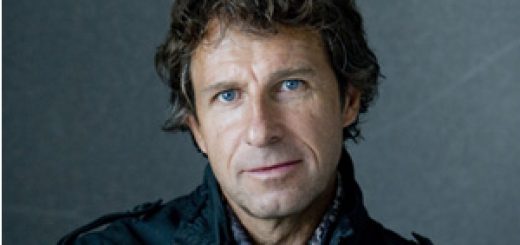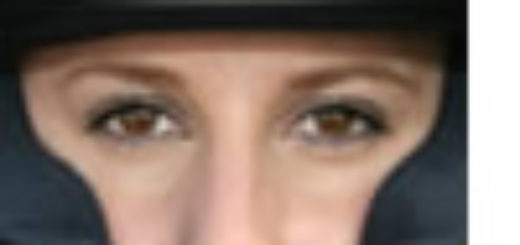„The major advantage is that my job involves something I love: sports” – interview with Igor Błachut, sport commentator
It is hard to imagine everyday life without sports, whether you’re attending a live game, or it is broadcasted on TV. It is also impossible to not have a favourite journalist on one of your most watched TV Stations. Viewers can easily recognize the voices of their favourite sports commentators, but fans know much about the people behind these voices. Igor Błachut, Polish Eurosport journalist, agreed to reveal some secrets and talk about his work, his free time (which is hardly available), and his passion for sports.
You worked in a radio station, now you work for a TV station. Which type of journalism is closer to your heart?
It’s hard to compare these two, as they reflect different dynamics. Working in Eurosport, however, seems like working in the radio, because we work with our voices and are rarely seen. We talk about what we see. Sound is the only medium that we, sport commentators use. In television, the viewers can also see a picture, which makes up 90% of the whole job for us. You don’t have that on the radio. Both radio and TV have their strengths and weaknesses, but I wouldn’t choose one over the other because they can both be satisfying, depending on your interests, as long as you are comfortable with them. Luckily, my work on the radio ticked most of the boxes and I am quite happy working in Eurosport as well.
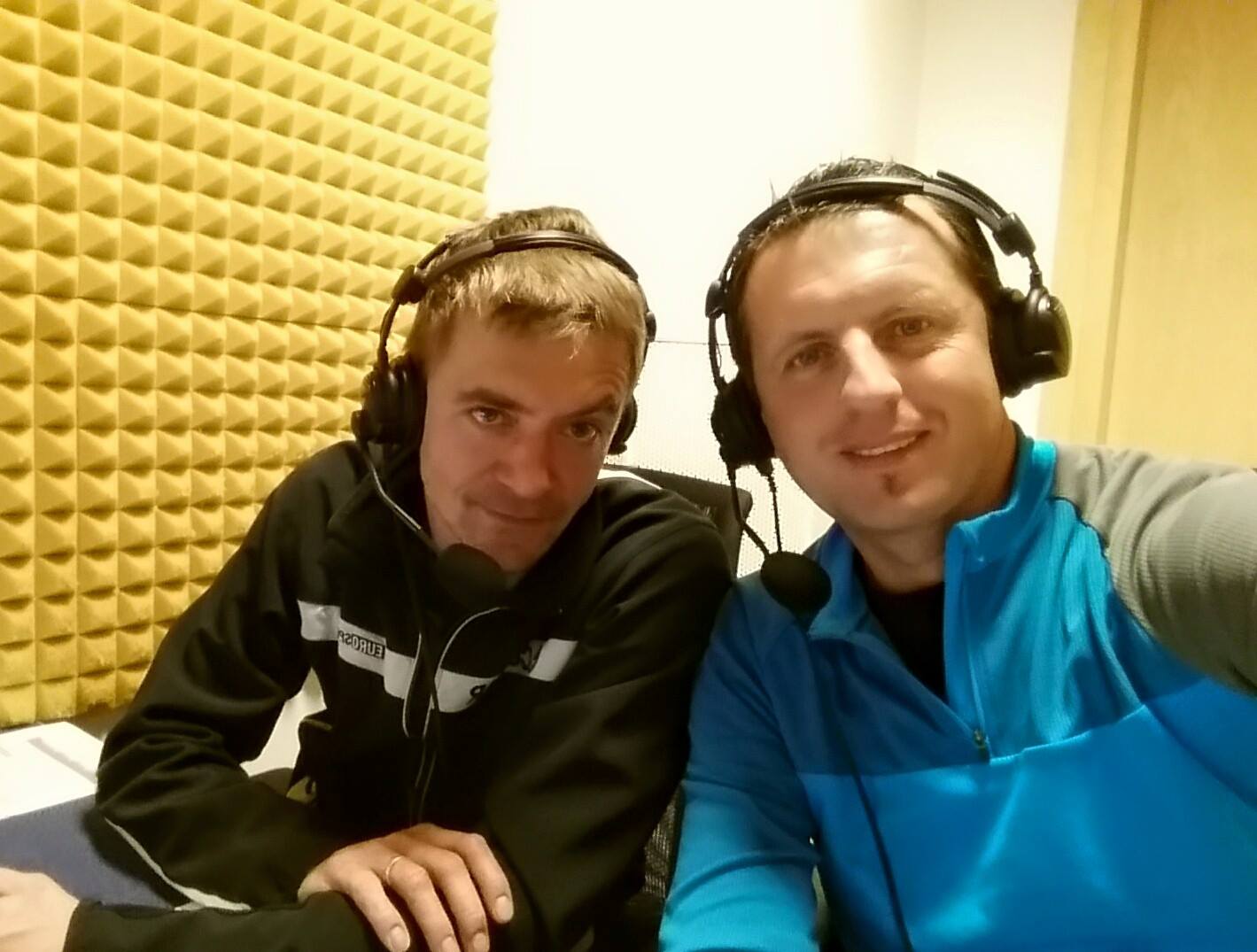
Igor Błachut and Darek Baranowski; source: Facebook
What are the highs and lows of working as a sport commentator?
The major advantage is that my job involves something I love: sports. It’s actually quite a nice job and for many years I haven’t experienced any stress related to my career. I also don’t have an issue with being in the public spotlight, which is what my work boils down to. On the other hand, working in my profession can also sometimes involve unanticipated situations and inconveniences due to technical or other unforeseen issues. You can’t avoid it working in the media. Things sometimes break down and don’t function the way we want, but even then I don’t feel stressed or ready to pull my hair out. I think the advantages of working as a sport commentator definitely outweigh the disadvantages.
I’d like to talk about orienteering. Why did you become so involved in this discipline?
I was too young to ask myself such questions. I was 11 when I discovered orienteering, so I guess I was too young for deep, self reflection. It’s a beautiful sport, giving a wide-ranged satisfaction: you can be physically exhausted and you still need to keep your mind sharp. Orienteering is not about mindlessly running or cycling in the forest; you also have to work out in which direction you’re heading. It’s a challenge for the body, because it requires both endurance and physical fitness training, but it is also a challenge for the mind. Orienteering is something that both 10-year-old children and the elderly alike can practise successfully, to the best of their physical ability. The event that best exemplifies this is the World Master Orienteering Championship. This event is attended by participants aged 35 and over, with people aged 60-70 making up the majority of those in attendance. Some of the competitors are over 90 years old. These people enjoy meeting other meritorious veterans and racing with them. While some of them are more fit and others are less vigorous, altogether they are equally enthusiastic about moving around in the woods. This discipline allows even those who are a bit less fit to fight with the best for the World Championship trophies. Orienteering is representative of those who are at the top of the sport, but is also inclusive to those who wish to practise it for fun, recreation, good health or just well being. Luckily, I’m not the only one who finds this discipline attractive. Of course we can’t be compared to Scandinavia or even the Czech Republic, where orienteering is far more popular, but I dare say more and more people are recognizing what running with a map is all about and trying their hand at it. It’s undoubtedly pleasing.
What is your advice to those who would like to start their adventure with orienteering?
They should just come for training or competitions in their local area and take their chances. There’s an amazingly large number of opportunities to do this in Poland. It’s easier to start enjoying orienteering in larger cities like Tri-city or Warsaw where you can race throughout the whole year, once or twice a week.
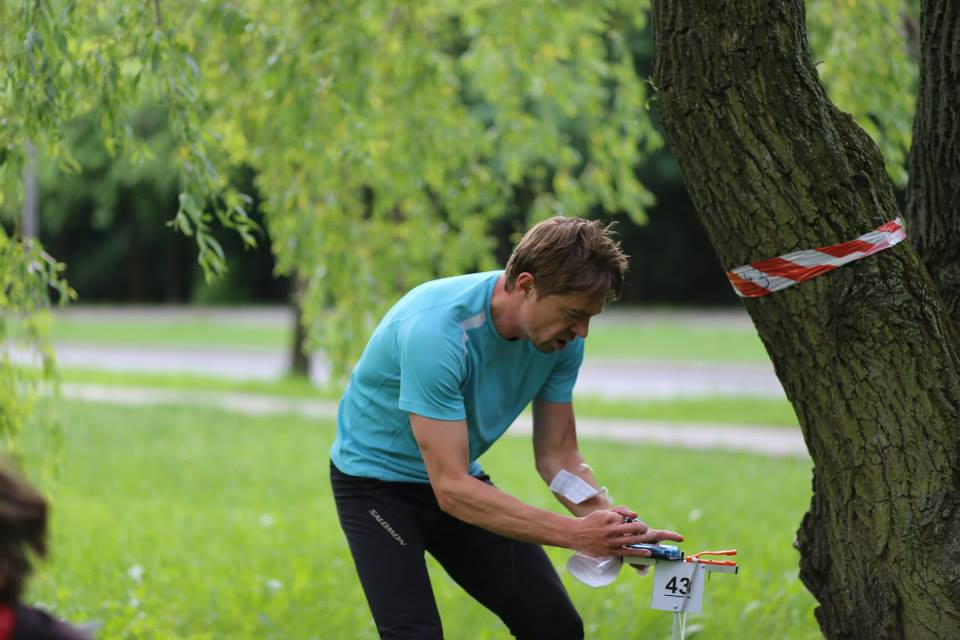
Igor Błachut; source: Facebook
A great tool for beginners is the use of so-called “Green Checkpoints”. Green Checkpoints are found on maps that are available on the web and ready to print. Apart from the cartographic content distinctive to orienteering, the maps indicate control points marked in the terrain by wooden poles. It’s easy to find some information on the web on how to read these maps as you need to bear in mind they have their own legend. This is not much different to what you find on common maps, but is still more advanced due to the fact that these maps are pretty detailed. So, if someone feels like trying something new and doesn’t scare easily, I would strongly recommend orienteering. In fact, there’s nothing to be afraid of because walking and running in the forest is very pleasant. Here in Poland, we don’t have any wild beasts prowling around and attacking passers-by, so there are no reasons not to have a try.
You run calisthenics classes. Could you tell me about it?
These are indoor classes which I would still be running if it wasn’t for the virus thing. The halls are closed, so inevitably the classes are now cancelled. But yes, indeed, we run whole-body classes. Our aim is to teach motor and physical skills to children and teenagers who represent our members during the season. Older people and those who don’t belong to our club also attend the classes. These calisthenics sessions are not very advanced. They consist of simple gymnastics and physical exercises that we run during a school year twice a week.
How would you encourage people in all age groups to be physically active?
It actually depends on the age group. I get the impression that the need for physical activity differs according to ones age as well as the habits we learnt at home and school. My observations are rather grim: it’s more difficult to encourage young people to participate in recreational activities, not to mention participating in sports. Electronic gadgets are undoubtedly so attractive and mind-engaging, that it’s not easy to convince youngsters to close down their laptops for a moment and go play outside. It is clear to see that coaches and trainers are leaving no stone unturned when it comes to attracting young people – with varying degrees of success. Usually children are brought to tennis or football practise by their parents, who fondly hope they will raise another Robert Lewandowski or Iga Swiatek in order to provide them with wealth and financial stability. However, the result may vary.
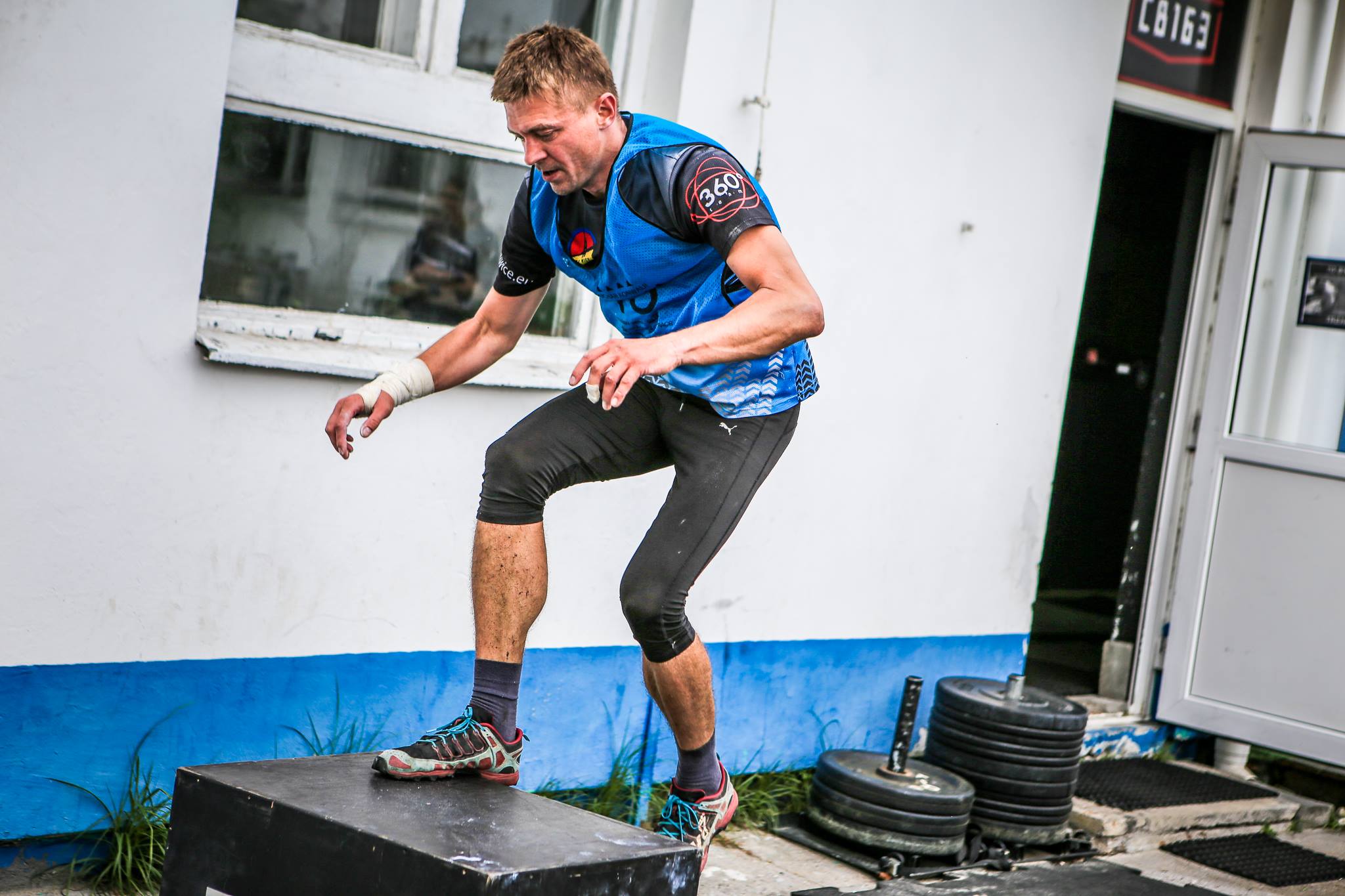
Igor Błachut; source: Facebook
Surprisingly, it’s easier to encourage people who are in their 30s, 40s and even older to be active. In their childhood they were used to spending afternoons outside, playing football or hide and seek, chasing each other or just jumping around construction sites. Physical movement was a natural activity and a way to spend their time. Now it’s gone. I don’t mean the insane covid period where children are being locked down in their homes by government order, but even before that. Before the virus it was still was rather unusual to see bunches of kids running or riding bicycles outside. It used to be like that, but somehow these activities have been disappearing despite the fact that the child population rate is relatively stable. Something is definitely wrong.
How to encourage them? I believe parents can play a key role here. They need to talk to their children, encourage them and set an example to follow. An ideal situation is one where the entire family is involved; they swim together, play football or go sailing, or perhaps skiing during the winter sports season. In such families everyone inspires each other. However, for example, when a mother goes to gym but none of her children join her because they aren’t interested in gossiping with her girlfriends on the treadmill, or if nobody at home is keen on sport activities, this simply won’t work. This is then, in fact, a serious problem because a low level of physical activity and a minimal desire to move will sooner or later reflect on one’s health, and the consequences are often unpleasant.
Do you have any hobbies other than sports?
It depends on what you mean by “hobby.” I do not catch butterflies or collect stamps, while I did do so when I was a little boy. I wouldn’t even have enough time to cultivate other interests that would consume more of my attention and energy, which are already divided between typical house chores, work and sports (which demands regular physical training). If reading ticks a “hobby box,” then I say yes, but I can hardly think of anything else that meets the criteria.
So, do you have any free time at all?
I try to find it, but I read whenever I can. It’s a habit from my childhood which is not vey common nowadays, I’m afraid. Audiobooks are more and more popular in order for people to listen to books while doing other things. I don’t really like to do this because listening to a book while performing other activities can result in “in one ear, out the other,” and sometimes a text is worth contemplating. I do my best to encourage the traditional way of reading book, which sadly reflects on the free space in my flat. Books have their size and once in a while I have to move, give away or distribute parts of my library, because they simply don’t fit anymore.
Do you like any specific book genre or do you read everything?
I’m not very keen on some genres such as, let’s call it, “romance-sensational literature.” However, I’m not opposed to more serious prose or historical books. Good fantasy doesn’t repel me either.
Well, you’ve already achieved a great success in ski jumping, but also as a vocalist, singing a part in one of the Christmas songs recorded annually by a radio station team. What will be next?
That is saying too much, but okay. What’s next? Luckily nothing! If you try to do everything at once, then it’s hard to be good at even one thing. It’s better to do things decently well than give everything a lick. For now, my career as a vocalist has been indefinitely suspended, as well as my ski jumping profession. That is even more finalized now that the ski-jump structures in place in Zakopane, which were supposed represent the gradual levels of achievement in my career, are being renovated. Before this has been completed I’ll be so old that it will neither suit my age nor be safe. As for now, I am done with it and I’m not planning to resume these activities.
What do you wish for in the new year?
I wish for not only myself, but everyone to get back to our normal life, because our current conditions are very frustrating and costly. Lots of people, and their businesses may never recuperate after what the authorities have provided for us over the last 12 months, and it resonates in the other aspects of everyday life. If a family doesn’t have enough money, they refrain from spending on things that were once quite common. I don’t mean basic needs like rent or food, but the money that was spent on yourself to go somewhere, see something, be active or practise sports. When there’s no money, everything that’s not a basic life need, recedes into the background. That’s a pity because our society is lacking without these things. So, it would be great if things got back to normal and if people were able to take advantage of that, with a smile on their faces. The rest is just a matter of good health, which I wish to everyone including myself, as it’s crucial. If we’re not worried about health issues, everything else is a little bit easier.
This is what I wish to you and all of us. Thank you so much.
Thank you kindly.
Anna Jankowiak

